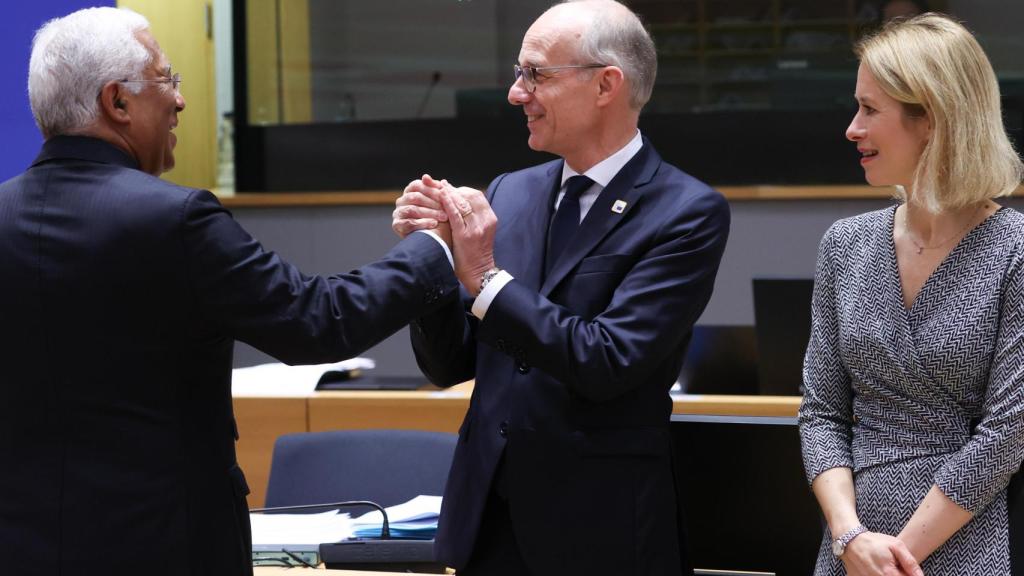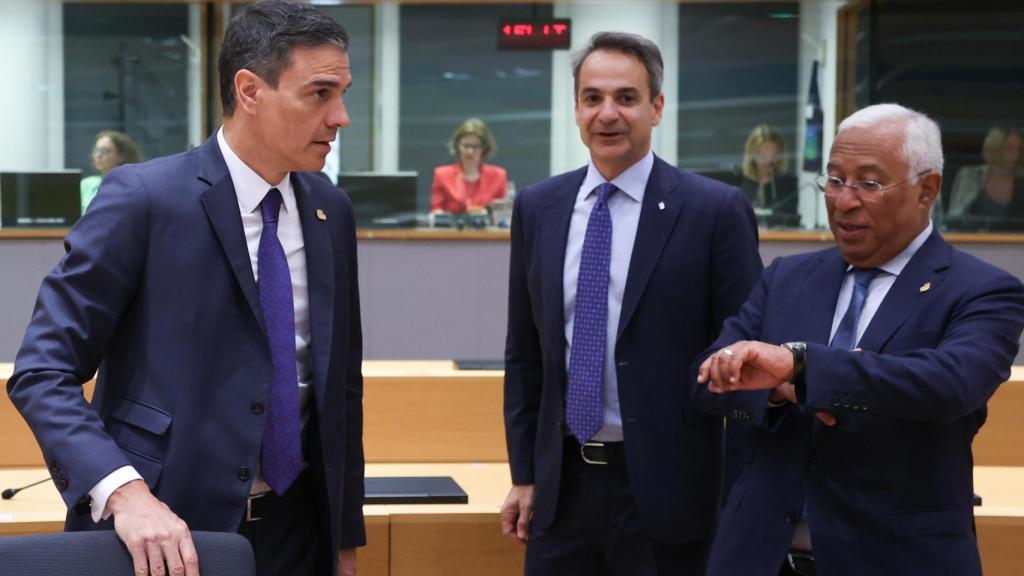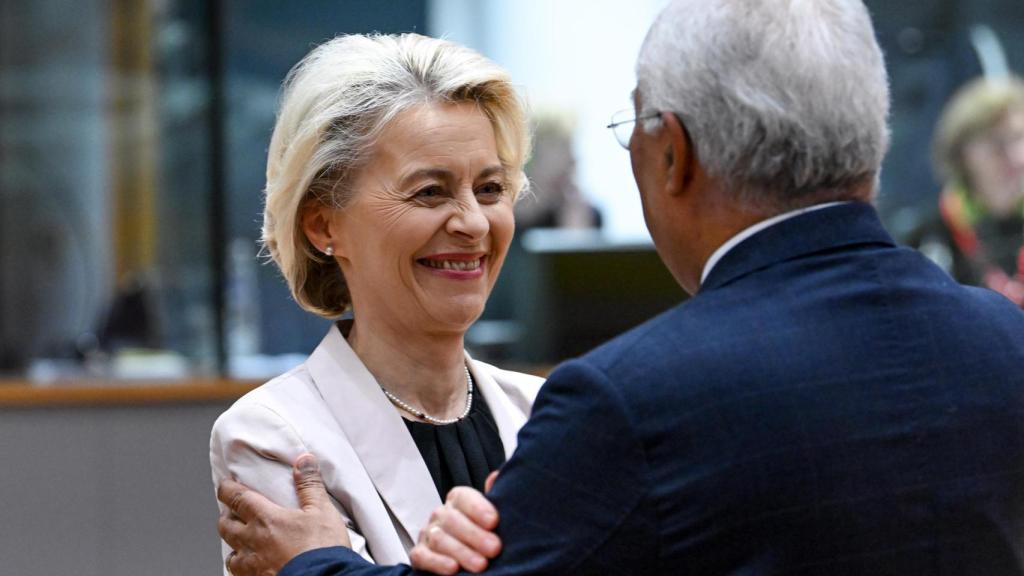In July 2019, Ursula von der Leyen She was the unpopular Minister of Defense of Angela Merkelbesieged by the internal problems in your department. She was not a candidate for the European elections, she did not campaign and her name did not appear in the pools. After three days of conflictive negotiations in Brussels, in which all the declared candidates fell one after another, the French president, Emmanuel Macronproposed his name and obtained the unanimous support of the rest of the leaders to lead the Commission.
The presidency of the European Council had initially been thought of as a position for heavyweights in community politics, such as Tony Blair or José María Aznar. However, the first holder of the position in 2009 was Herman Van Rompuy, an obscure Belgian prime minister who always carried out his work of forging consensus away from the spotlight. In July 2014, Federica Mogherini She had only been Italy’s Foreign Minister for four months. But the exceptional result in the European Championships of her boss, Matteo Renzipromoted her to the position of High Representative of the EU for Foreign Affairs and Security Policy.
The race for top positions in the European Union is often intense, difficult and unpredictable. A struggle full of obstacles and surprisesfailed pools and hidden candidates who only emerge at the last moment. But this time everything seems different. The heads of State and Government of the Twenty-Seven begin to debate this Monday at a working dinner the configuration of the new community power leadership after the earthquake of the European elections. Elections marked by the rise of the extreme right, but also by the capacity for resistance of the ‘grand coalition’ of popular, socialists and liberals, which retains the majority.
[La ‘gran coalición’ de populares, socialistas y liberales resiste el empuje ultra y retiene la mayoría]
The big news now is that the distribution of senior positions could already be closed even before formal negotiations begin (informal contacts began months ago). All the sources consulted by EL ESPAÑOL agree that the German Ursula von der Leyen he will repeat a second term at the head of the European Commission; former portuguese prime minister Antonio Costa he will retain the presidency of the European Council; and the Prime Minister of Estonia, Kaja Kallaswill replace Josep Borrell as High Representative for Foreign Affairs and Security Policy.
What is not clear is whether the agreement can be closed this Monday or we will have to wait for the next summit on June 27 and 28. “Although a clear consensus is emerging on senior positions, there may not yet be a decision this Monday. Some leaders will probably want to stop the decision in an attempt to boost the options of their own candidates for other secondary positions,” a European diplomat explains to this newspaper.
Estonian Prime Minister Kaja Kallas talks with President Ursula von der Leyen during a European Council
In this distribution of the stones, the president of the Government, Pedro Sanchezwho acts as a negotiator for the European socialists, aspires to place Teresa Ribera as vice president of the community Executive responsible for climate change, ecological transition and green industry. In Brussels there is speculation that the Italian Giorgia Meloni will ask Von der Leyen for an important economic portfolio in exchange for her support (and that of her 24 MEPs). The Polish Donald Tuskwhich has also emerged stronger from the Europeans, could also claim its share of power.
All of these secondary positions do not have to be formally decided by European leaders, but will be discussed behind the scenes at the summit. The choreography of the event has been particularly complicated by the declared hatred between Von der Leyen and the outgoing president of the European Council, Charles Michel, which intended to leave out the German because she was a candidate. In the end, the president will attend the first part in which the EU’s strategic agenda for the next five years is debated, but she will leave the room when the leaders talk about senior officials.

Former Portuguese Prime Minister António Costa greets his Luxembourg counterpart Luc Frieden, in the presence of Kaja Kallas
If the heads of state and government try to overthrow any of the three favorite candidates now, the move would throw off the entire complex sudoku that supports the European power leadership and would force them to start over from the beginning. The shortlist formed by Von der Leyen, Costa and Kallas respects all the complex balances that demands the distribution of senior positions in the EU, starting with gender equality. Each of them needs the support of a qualified majority in the European Council to leave.
Von der Leyen comes from a large central European country and is the candidate of the European People’s Party (PPE), which won the 9-J elections by a wide margin, the result of which must “consider” European leaders to elect the presidency of the Commission. The German enjoys broad support among the heads of state and government: only the Hungarian ultra Viktor Orbán has suggested that he will vote against. The French president, Emmanuel Macronthreatened to try the alternative candidacy of Mario Draghi, but it has been greatly weakened by the result of the European Championships in France. Pending what Meloni decides, Von der Leyen could in principle gather the 361 votes he needs in the European Parliament to be confirmed.

Pedro Sánchez, Kyriakos Mitsotakis and António Costa, during a meeting of the European Council
“All the leaders like António Costa”explains another European diplomat. The European socialists came in second place on 9-J and now want the presidency of the European Council and not the head of diplomacy that Borrell held in 2019. Their candidate for many months has been Costa, a close ally of Pedro Sánchez on issues such as “Iberian exception” and which would also be representative of the southern countries. The Portuguese’s chances plummeted when resigned as prime minister in November 2023, when he was involved in a corruption investigation. The case has deflated and Costa is not accused of anything, so the sources consulted rule out that he could harm his aspirations.
The third piece of the puzzle is Kaja Kallas, which belongs to the liberal political family and also represents the Eastern countries and small countries. Estonia’s prime minister, dubbed ‘Europe’s new iron lady’, wanted to be secretary general of NATO, but she was ruled out because of her line considered “excessively” harsh towards Russia. This risk factor still worries some Member States when it comes to appointing her as High Representative, although this position has less room for maneuver: foreign policy remains in the hands of the Member States and any movement in the EU requires unanimity.
[Kaja Kallas, la nueva ‘dama de hierro’ de la UE a la que Putin ha puesto en su lista negra]
That the negotiations to appoint this trio are very advanced is also demonstrated by the movements of their respective governments. “It is possible that the presidency of the European Council will go to a socialist candidate. If Dr. António Costa were a candidate for that position, The Government of Portugal will not only support you but will do everything to ensure that this candidacy is successful,” said the Portuguese Prime Minister, Luis Montenegrowhich belongs to the European People’s Party family. Costa himself has admitted his interest in the position.
For her part, Kallas does not want to openly acknowledge that she is a candidate, but in her own government they denounce her. The new High Representative “must have a deep understanding of security policy and understand the threat from Russia. I will say it without hesitation: the best candidate would be Kaja Kallas“said his Foreign Minister, Margus Tsahkna, who belongs to another liberal party in the government coalition.

Ursula von der Leyen greets António Costa during a meeting of the European Council
“Everything indicates that Ursula von der Leyen will be able to serve a second term“he said this weekend in an interview Olaf Scholz, second negotiator for the Socialists and who will also be responsible for designating her as a German candidate for the Commission even though she belongs to a rival political family. The chancellor is also betting on a quick decision.
Although everything seems tied up and tied up, European leaders could still break the puzzle and start from scratch. But it would be very difficult for them to find new candidates who respect all political, geographical and gender balances. Besides, The heads of state and government do not want to get involved in an eternal name debate at a particularly complicated geopolitical moment, with two wars in the neighborhood (Ukraine and Gaza), the possibility that Donald Trump and his isolationism will return to the White House and the growing aggressiveness of China.
“There are not so many good combinations. Sometimes there is an easy solution but it is abandoned. You go to the difficult solution but it doesn’t work out and you end up returning to the starting point,” points out a third European diplomat.


![[Img #74664]](https://thelatestnews.world/wp-content/uploads/2024/12/James-Watson-The-controversial-genius-behind-the-double-helix-150x150.jpg)










Add Comment